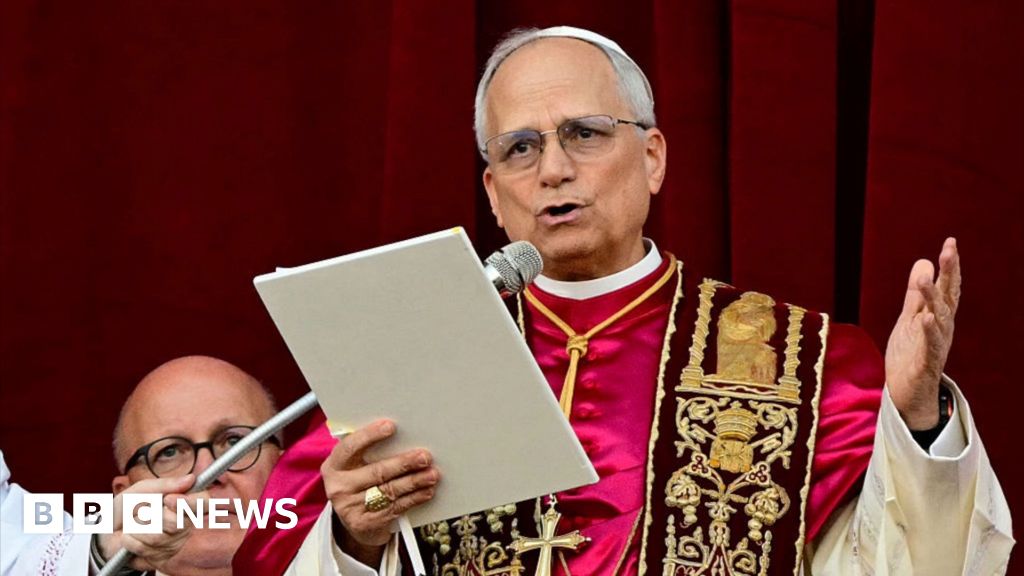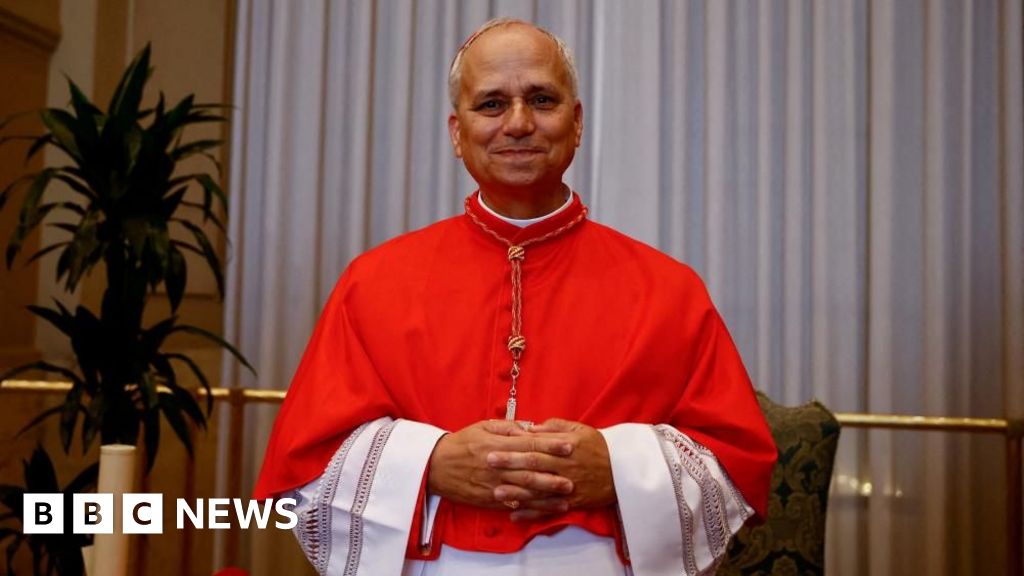ARTICLE AD BOX
By Zoya Mateen
BBC News, Delhi
The amateur historians discovering their city on Instagram
Umair Shah was seven when he had his first brush with history.
He met a coin dealer in his hometown, the Indian city of Kolkata (formally Calcutta), who piqued his interested in coins.
As his collection grew, he began reading about the empires depicted on these metal discs.
"By the time I was 16, I was overcome with a crazy longing for these places and people," he said.
Image source, Getty Images
Image caption,People have been rediscovering the story of Delhi's monuments through Instagram
Mr Shah, now 27, lives in Delhi where he works in digital marketing for fashion brands. But he's also Sikkawala, or coin collector - that's his moniker on Instagram where he documents fragments of history.
To take to Instagram isn't to reduce history to a mere snapshot. Mr Shah's lyrical captions are steeped in facts and read like excerpts from an exciting story - where we learn about dead emperors, malevolent djinns and of rebellions that dissolved empires - in about 300 words.
"When I see a ruin, my mind tries to conjure the structure as a living memory of the times in which it was built," Mr Shah said. "And I immediately want to share its story with everyone."
For years, Delhi's tangled history has been the preserve of academics. Now, the job is finding new recruits in people like Mr Shah, who are rediscovering the city and chronicling its exciting past, one Instagram post a time.
Image source, Umair Shah
Image caption,For history buffs like Mr Shah, every ruin like the Sunder Nursery in Delhi is special
Mr Shah is not alone in his quest.
Rameen Khan, a 34-year-old MBA working with Snapdeal, didn't move to the Indian capital for its famed monuments - he came for love.
But the city, he says, has certainly been "the start of something beautiful" for him, a passion that has since taken him to 10 states, which he documents on City Tales, his Instagram page.
Mr Shah and Mr Khan say want to make people fall in love with their past.
"Most people go to monuments to take selfies or dance on a reel," says Mr Shah. "I want them to realise what more the place offers."
Image source, Getty Images
Image caption,Young boys pose for pictures inside a stepwell in Delhi
They have hundreds of thousands of followers on Instagram - and have also earned praise from renowned historians like Rana Safvi.
"We need popular Instagrammers [like them] to connect the past to the present and to showcase all the research done by historians in an easy-to-read format," Ms Safvi says. "I think what they're doing is beautiful."
"We all learn and grow, and I've seen them grow from strength to strength, learning from their experiences and past mistakes - if any."
History dwells in every corner of Delhi, which is full of splendid forts and haunting tombs.
Winter adds to the charm, despite the toxic fog that envelopes it every year. If you are lucky, there are days when the soft glow of sunshine falls like powdered gold over the city - a time when the stunning mausoleums, many of which are surrounded by sprawling gardens, are a joy to explore.
Image source, Getty Images
Image caption,History dwells in every corner of Delhi - the Humayun's Tomb is one of the biggest draws
It was on one such winter afternoon that Mr Shah and Mr Khan led two separate tours - something they started doing recently on popular demand - inside the city's Mehrauli Archaeological Park.
Spread over nearly 200 acres of land and with some 100-odd stone ruins and mausoleums, Mehrauli is one of the seven cities that together now form Delhi.
"Most people don't associate these monuments with the same level of grandeur as Taj Mahal or Qutub Minar. But they really should," said Mr Khan. The Qutub Minar, one of city's best known monuments, is just a few metres away and is usually teeming with visitors.
With architecture spanning centuries - from the Tughlaqs to the Lodhis, the Mughals to the British and even the Rajputs - the city, he says, is dotted with invaluable clues to its past.
But in Mehrauli, the only other visitors for the day are a group of men playing cricket, whose shrieks occasionally pierce the quietude of the afternoon.
Image source, Getty Images
Image caption,Mehrauli is a treasure trove of mausoleums and stepwells
Image source, Getty Images
Image caption,The archaeological park is spread over nearly 200 acres of land
The signs of neglect here are evident.
The space is overrun with dense and wild bushes. Its common to see men huddled around a fire smoking and relaxing in ancient courtyards. And when you peak inside crumbling but gorgeous stepwells, the sight of piling garbage jars you.
Mr Khan says the poor upkeep is also due to the lack of interest and awareness.
"People think of history as a boring and dry subject, so they never bother [to learn,]" Mr Khan said.
He added that he was drawn to Mehrauli because he was interested in monuments that had been forgotten. And he wanted to search for more of these, so he could spotlight them.
Like a treasure hunter, he too uses a map, but on Google.
And it has led him to some unexpected finds. His favourite: a 15th Century mosque in neighbouring Haryana state that now serves as a public school.
"When I post about these [lesser known] places, people get excited and I hope it pushes them to explore."
Image source, Rameen Khan
Image caption,The Najm Al Haq Mosque in Haryana is now a school
Mr Shah too has his treasured spots.
In Mehrauli, it's a two-storeyed Mughal tomb, its tiles and carvings now covered in grime. But a closer look reveals traces of Victorian architecture.
The man behind the "unforgivable folly", Mr Shah explains, is Thomas Metcalfe, a British agent, who modified the tomb and used it as "a resort for guests".
"You could say that this was Delhi's first B&B," Mr Shah says, chuckling.
Image source, Rameen Khan
Image caption,The tomb of Quli Khan which was used as a retreat by Thomas Metcalfe
At the other end of city lies the sprawling old city of Shahjahanabad, or old Delhi. The former Mughal capital is a labyrinth of narrow alleys, sequestered houses and tiny shops - and home to some of India's most iconic architecture, including the majestic Red Fort and the Jama Masjid mosque.
Abu Sufiyan, 28, lives near Jama Masjid and is a media consultant. But in his free time he runs an Instagram page - Puraani Dilli Waalon ki Baatein or In the Words of Old Delhi.
He tells his 84,000 followers about the many havelis or mansions in the crumbling edifice of the alleys; the magnificent Jain temples; and the stories behind the many delicacies that are sold in these lanes.
Image source, Rameen Khan
Image caption,Mr Sufiyan is especially drawn to the lesser known Jain temples of Old Delhi
Image source, Getty Images
Image caption,Jama Masjid is the largest mosque in India
"There's only one thing that motivates me - the passion for the city," Mr Sufiyan said.
Ms Safvi says he "knows old Delhi like the back of his hand".
"I have done a lot of exploration with him for my book on Shajahanabad and he's mentioned numerous times," she adds.
While Mr Shah and Mr Khan are drawn to the stones and pillars that make a monument, Mr Sufiyan's muse is the people who live here or visit - the locals, the tourists and other history buffs.
A tour involves several unplanned stops as he greets people along the way, or enters properties with interesting facades to find out more about them. And the more he explores, the more the city offers.
"Delhi is a city of unending mysteries," Mr Sufiyan says. "We have a lot of work left. But for now, its one alley at a time."

 3 years ago
38
3 years ago
38








 English (US) ·
English (US) ·